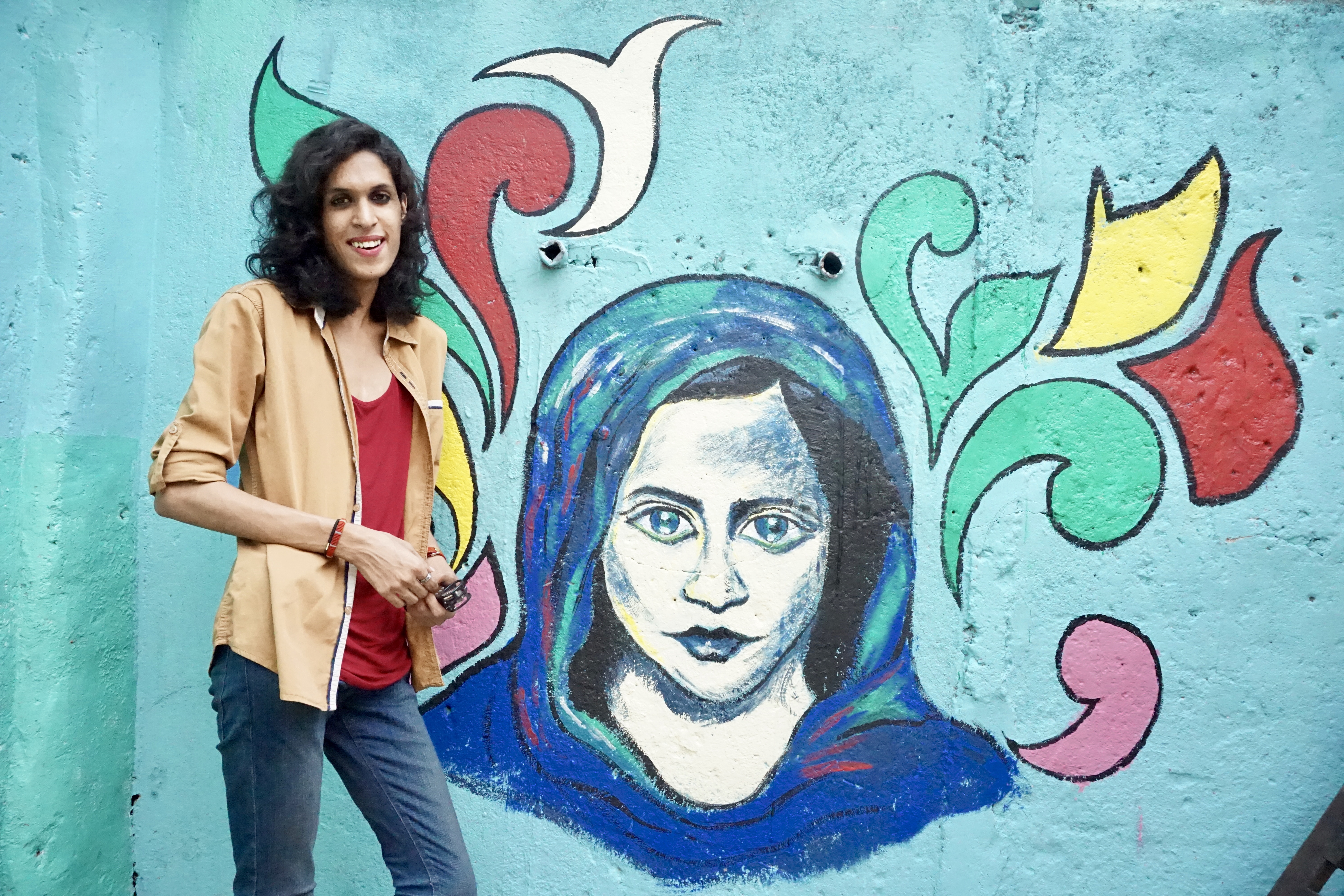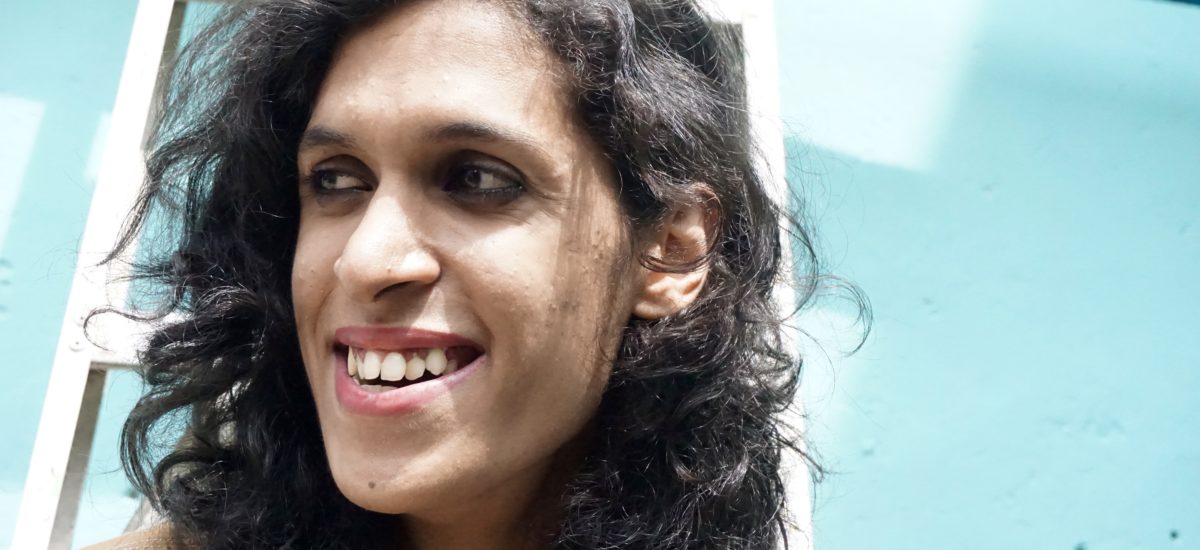This is the second in a series exploring men and women who challenge gender stereotypes for International Women’s Day on March 8.
Vicky Shahjahan seems to naturally command attention. The tall 24-year-old doesn’t seem to notice this, chatting about art while walking through Kompannavidya. Yet suddenly Vicky stops and points to a curious lady watching us from her balcony. “That lady saved me,” Vicky says simply. “When I walked into a shop, a man said that I was not human. She stood up for me. She said that she knew me very well and he had no right to make such statements.”
Vicky relates this story matter-of-factly. As the only person identifying as androgynous in the area Vicky has grown used to stares, questions and comments.
“It doesn’t offend me. I’m very used to it. I try to just answer people’s questions.”
Vicky believes there is more to identity than being labeled by gender. Biologically a male, Vicky had a distinctly feminine side which school-friends tried their best to stamp out. Vicky would have none of it.
“People perceive men as being bold and tough, and women as being soft and sensitive,” Vicky says. “They want to put you in a box. If you don’t fit in with what society dictates, they tell you that you don’t belong.”
When Vicky began dressing differently, it puzzled many acquaintances. “You were a boy, but you dress in such a feminine way now… What are you?” they asked.
Apart from the expected curiosity, there was also some hostility. Some people confronted Vicky’s family, asking them if they were not ashamed. Then there were the open confrontations, such as the one in the shop. Thankfully, there were also many who came forward to support Vicky; sometimes from surprising quarters. “I had this religious man say that he understood that I was different, [and that I was just expressing my identity].” Vicky’s grandmother is also supportive, and often defends her grandchild.
It turned out that Vicky’s own talent was the key to bringing about understanding and acceptance within the community.
“I used art as a weapon… and now people call me an artist. They forget to discuss my gender.” Vicky’s forte is detailed, black and white sketches; from hyper-realist renderings of a man pensively smoking a cigarette, to inked self portraits that wouldn’t look out of place in a graphic novel.
Vicky’s art, shared with permission
Apart from the expected curious stares, as we walk through the bustling neighbourhood, there are also smiles and occasionally, friendly greetings. Perhaps this is because Vicky has also brought art to the streets of Kompannavidya.
A few steps away from home is a vividly coloured mural, hidden behind a ladder.

Vicky believes that art shouldn’t be restricted to galleries and exhibitions, but should be available for the public to enjoy. “Once I explained what the idea behind the mural was, the whole community really came to appreciate it. Some even asked me to do more.” Vicky is also sought after for henna application – rendering complex patterns on the hands of brides from the area.
Vicky challenges perceptions and ideas around identity – and recognises others who do the same.
“I know women who have changed and challenged the world with courage. This is to all the women out there who keep doing great things in life with persistence… It’s never too easy to be a woman in this world yet I believe that every woman is strong in some way,” Vicky writes.
It’s an apt statement to consider on Women’s Day.
Click here to read the previous article in our series, on Sri Lanka’s first female expressway bus driver. For the next article, click here.




